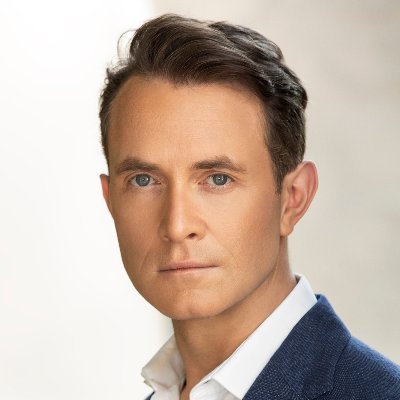 BBC News
BBC NewsBorrowing was £17.4bn last month, the second highest October figure since monthly records began in 1993.

When it comes to publishing, the problem these days is getting your foot through the door in the first place. You can publish Jordan Peterson now despite the controversy surrounding him because has already broken through. That’s the obvious example. The thing I worry about here is: “How are young people at the very of beginning of their career, allowed to say what they think?”
I remember when The Strange Death of Europe came out, I was face to face with a very nice lady at a drinks party who said she was in the publishing industry and working for one of the major publishers. She said she’d said to her boss: “Have you seen how well Douglas Murray’s books are selling?” And he said: “Yes.” She said: “Didn’t I tell you we ought to do something in that area?” The area, I suppose, would have been immigration. And apparently her boss said to her: “We wouldn’t those readers.” So I said: “You must tell him at his next shareholders meeting that they are not a for-profit organisation, but rather a sort of weird NGO of some kind.”
So the publishing industry – like every industry – is susceptible to this same strange problem of wokeness. I was with an academic recently, who was gay, and had got into terrible trouble because he’d been pro-Brexit. I found myself saying at one point: “Why is it such a terrible sin to be in agreement with the majority of the public?” I don’t want academics to be pro- or anti-Brexit; I just don’t particularly want this kind of conformity which a vociferous minority seems to want.
One thing we have to think about seriously as a nation in the years ahead is where the talented people go. I spent a certain amount of time in Silicon Valley in recent years researching The Madness of Crowds so this has been on my mind a lot. Would a smart person today go into politics? Would they seek to be an MP? Would they seek to be an academic? Probably not – and that accounts for the impoverished nature of this moment in both politics and education.
My friend Christopher Hitchens used to say that he couldn’t write fiction, and he knew why. He knew people who could – like Martin Amis and Salman Rushdie – it was because they were always interested in music. Well, I enjoy music, and I play the piano every day. Sometimes people try to get me to do fiction. First of all, I don’t think you should force it on anyone. Secondly, my view is that for the last 20 years we live in an age of reflection and that has made fiction feel secondary – it’s rather like trying to write the book of the age in heroic couplets. For example, if you wanted to read about the Vietnam War, for instance, would you do better reading a novel about it or a great book like Nothing and So Be It by Orianna Falacci. I would suggest the latter. There’s this feeling that fiction is not where the action is. But it does feel that to me that poetry on the other hand, always has such a small audience that somehow it never becomes irrelevant.
When prose-writing is exceptionally bad, as with for instance Judith Butler, it can be for one of two reasons. One possibility is that that person simply has nothing to say. But the second thing is rather more alarming – that they know that what they’re writing simply isn’t true. And there’s a lot more of the latter kind of literature around than you might think.
What happens in academia is that impenetrable language is used as a screen. You’re meant to think that if it’s unreadable that must be wisdom there somewhere. That’s why you can’t just critique these books, you also have to offer an alternative reading list. In that sense everything begins with Plato – and also with the Judaeo-Christian tradition.
Photo credit: By AndyCNgo; cropped by Beyond My Ken (talk) 00:23, 8 May 2020 (UTC) – Own work, CC BY-SA 4.0, https://commons.wikimedia.org/w/index.php?curid=89983788